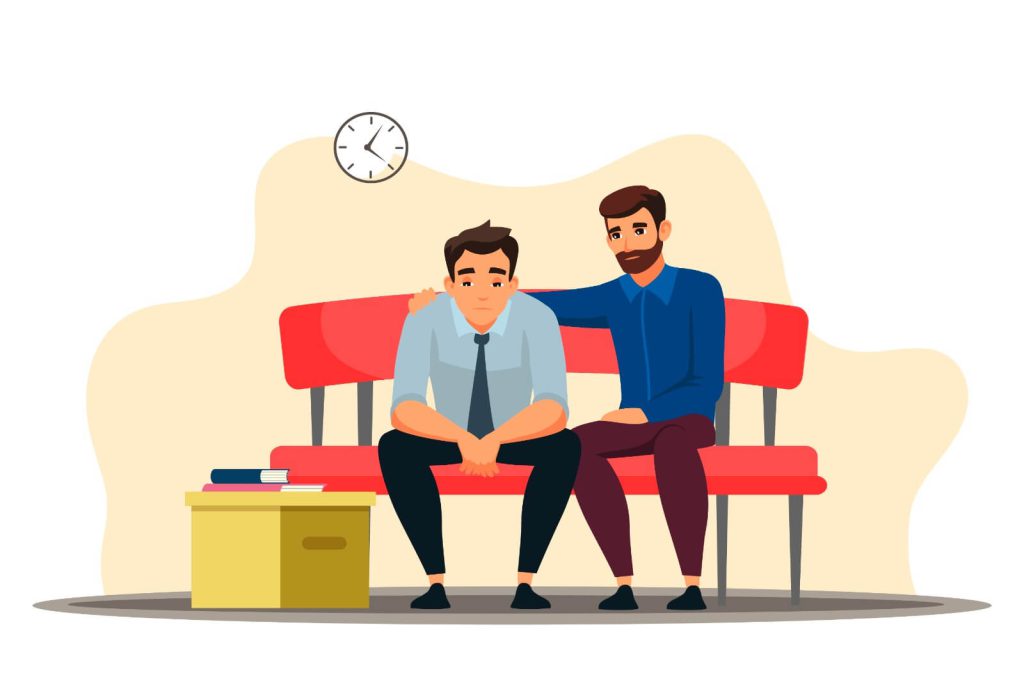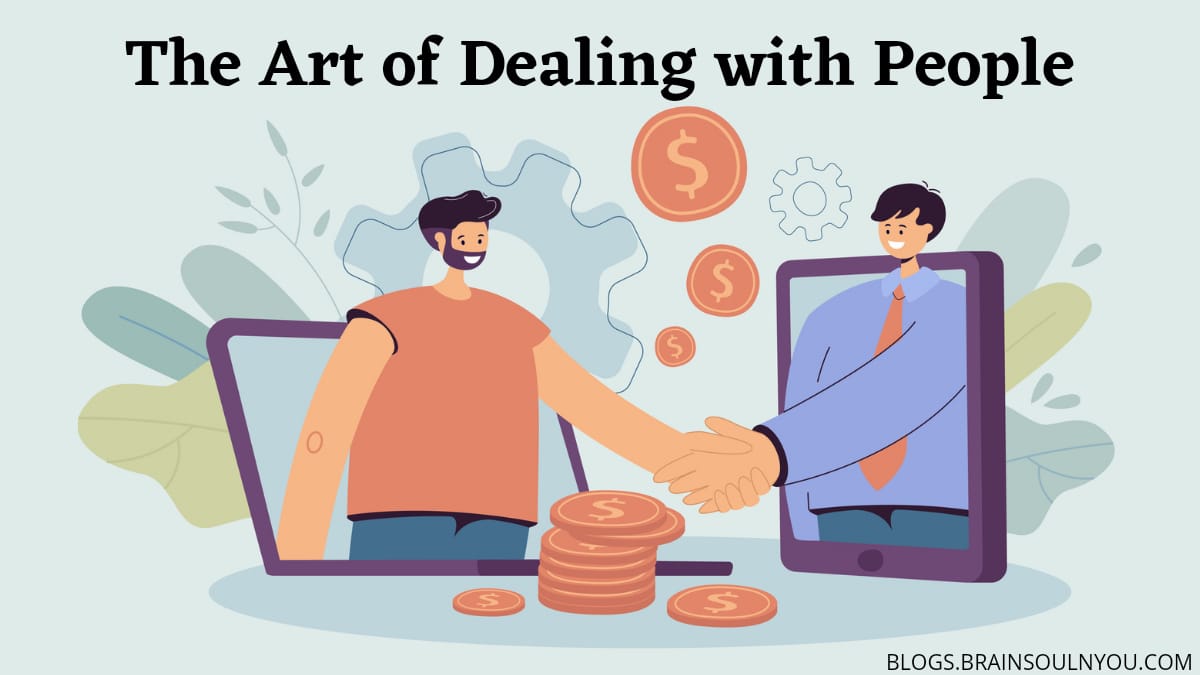The one quality most successful people have in common is that they know how to deal with people. They are very good at the art of dealing with people.
The art of dealing with people refers to the skills and strategies involved in effectively interacting, communicating, and building relationships with others. It involves understanding human behavior, practicing empathy, and developing effective communication and interpersonal skills.
We all need two things in life, one is success and the other is happiness. Everyone is different from each other and the way to success and its idea is also different. But everyone has one thing in common that they know how to deal with people.
Some scientific studies have also proved that the art of dealing with people is 85 percent of the reason for success and 99 percent of the reason for personal happiness. 90% of people fail because of failure in the art of dealing with people.
Key Aspects of Mastering the Art of Dealing with People
Here are some key aspects of mastering the art of dealing with people:
Active Listening: Actively listen to others by giving them your full attention, maintaining eye contact, and showing genuine interest in what they are saying. Avoid interrupting and practice reflective listening by paraphrasing or summarizing their points to ensure understanding.
Empathy and Understanding: Seek to understand others by putting yourself in their shoes and considering their perspectives, emotions, and experiences. Show empathy and validate their feelings, even if you may not agree with them.
Effective Communication: Communicate clearly, honestly, and respectfully. Use assertive communication techniques, express your thoughts and feelings clearly, and actively seek to understand others’ viewpoints. Be mindful of non-verbal cues, such as body language and tone of voice.
Emotional Intelligence: Develop emotional intelligence by being aware of your own emotions and managing them effectively. Also, be attuned to others’ emotions and respond empathetically. This includes regulating emotions, practicing emotional self-control, and demonstrating empathy in your interactions.

Conflict Resolution: Learn and practice effective conflict resolution skills. Be open to constructive dialogue, actively listen to the perspectives of others, and seek win-win solutions. Focus on the issue at hand rather than personal attacks, and be willing to compromise when appropriate.
Building Trust: Cultivate trust and credibility by being reliable, keeping commitments, and demonstrating integrity in your actions and words. Establishing trust is essential for healthy and successful relationships.
Positive Attitude and Respect: Maintain a positive attitude and show respect to others, regardless of their differences or opinions.
Adaptability and Flexibility: Be adaptable and willing to adjust your approach based on the needs and preferences of others. Recognize that each person is unique and may respond differently to various communication styles or situations.
Appreciation and Recognition: Express appreciation and acknowledge the contributions and efforts of others.
Continuous Learning and Improvement: Strive for ongoing personal and professional growth by seeking feedback, learning from experiences, and continuously improving your communication and interpersonal skills.
Mastering the art of dealing with people takes time, practice, and self-awareness. By honing these skills, you can develop strong, positive relationships, effectively collaborate with others, and navigate various social and professional settings with grace and effectiveness.
How to Deal with Difficult People?
Dealing with difficult people can be challenging, but here are some strategies that can help you navigate those situations effectively:
Stay Calm and Composed: Keep your emotions in check and maintain a calm demeanor when interacting with difficult individuals. Taking deep breaths and practicing self-control can help you respond in a more measured and rational manner.
Empathize and Seek Understanding: Try to understand the perspective of the difficult person. Put yourself in their shoes and consider the underlying reasons behind their behavior. This can help you respond with empathy and find common ground for communication.
Active Listening and Validation: Practice active listening by giving the person your full attention and demonstrating that you genuinely hear and understand their concerns. Validate their feelings and emotions, even if you don’t agree with their viewpoint. This can help defuse tension and open up the lines of communication.
Choose Your Battles: Not every issue or disagreement needs to be addressed immediately. Assess the importance and potential impact of the situation. Sometimes it’s better to let minor issues slide and focus on maintaining a positive relationship overall.

Set Boundaries: Establish clear boundaries and assertively communicate your limits. Maintain firmness while being respectful and assertive in your communication.
Respond, Don’t React: Instead of reacting impulsively to provocation, take a moment to pause and think before responding. Responding thoughtfully and with a level-headed approach can help de-escalate the situation and prevent unnecessary conflicts.
Focus on Solutions: When addressing during dealing with difficult people and difficult situations, shift the focus to problem-solving rather than dwelling on the problem itself. Collaborate with the person to find mutually beneficial solutions and work towards resolving conflicts constructively.
Seek Support: If the situation becomes overwhelming or persists, consider seeking support from a trusted colleague, supervisor, or mediator who can provide guidance or help facilitate a resolution.
Practice Self-Care: Make sure to prioritize self-care by engaging in activities that help you relax, rejuvenate, and maintain your emotional well-being.
Learn and Grow: Each interaction with a difficult person can serve as an opportunity for personal growth and development. Reflect on the experience and consider how you can improve your communication and conflict resolution skills for future interactions.
Remember that you cannot control others’ behavior, but you can control how you respond to it. By adopting these strategies, you can effectively manage difficult people and maintain your own well-being in challenging situations.
If you want to better master the art of dealing with people, take some cues from my sales guy. Be aware of what your face and body language are saying to people, practice bringing out your inner extrovert, and stop focusing on your talents. You’ll be on your way to a more prosperous career with those skills.
Love,
Saurabh Goel
Saurabh Goel
He is the Founder and CEO of the Training and Counselling Company ‘Brain Soul & You’. He is an NLP Wellness Coach, Life Coach, Brain analyst, and Trainer for Education, Corporate, and Entrepreneurship. For more than 7 years, he delivered presentations on entrepreneurship, mind programming, and motivation. He did his B.tech in IT and later choose to be a successful psychologist. He is helping people in various ways through his counseling and training sessions.


